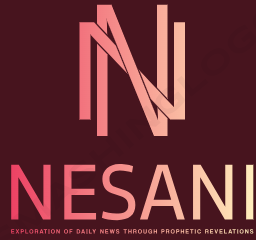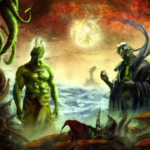In this article, you will explore the intriguing question of whether the current political events in Israel align with any prophetic timelines. As you delve into the complex world of political developments, you will delve into the possibility of these events being intertwined with prophetic predictions. Join us on this fascinating journey as we navigate through the dynamics of Israeli politics and its potential connection to prophetic timelines. Open your mind to new perspectives and join the conversation about this thought-provoking topic.
Political Events in Israel
Israel, a nation known for its rich history and complex political landscape, has been a subject of interest and speculation when it comes to aligning current political events with prophetic timelines. In this article, we will delve into the current political landscape, major political parties, recent elections, as well as explore the prophecies related to Israel, their interpretation and fulfillment, and the controversial interpretations surrounding them. Furthermore, we will analyze recent political events, potential connections to prophecies, and widely debated theories in the realm of Israeli politics and prophecy.
Current Political Landscape
The current political landscape in Israel is characterized by a diverse range of political parties, each with its own ideologies, priorities, and visions for the nation. This diversity often leads to the formation of coalition governments, where multiple parties come together to create a governing body. The political landscape is constantly evolving, influenced by a variety of factors such as shifting public opinions, regional dynamics, and geopolitical developments.
Major Political Parties
Three major political parties dominate the Israeli political landscape: Likud, Blue and White, and Yisrael Beiteinu. These parties represent different segments of the population and often compete fiercely for political power.
-
The Likud Party, led by Prime Minister Benjamin Netanyahu, is a right-wing conservative party that advocates for a strong defense, conservative economic policies, and the promotion of Israeli interests in the international arena.
-
The Blue and White Party, headed by Benny Gantz, represents a centrist coalition of parties aiming to bridge societal divides and promote unity within Israel. With an emphasis on social issues, the party presents itself as an alternative to the traditional right-wing leadership.
-
Yisrael Beiteinu, led by Avigdor Lieberman, primarily focuses on the concerns of secular Israelis and immigrants from the former Soviet Union. It emphasizes the separation of religion and state, emphasizes national unity, and promotes immigrant integration.
Recent Elections
Israel has witnessed several recent elections that have played a pivotal role in shaping its political climate. In particular, the elections held in 2019 and 2020 have garnered significant attention both domestically and internationally.
The 2019 elections were marked by a closely contested race between the Likud Party and the Blue and White Party. Despite the Likud Party initially securing a higher number of seats in the Israeli parliament, known as the Knesset, neither party was able to form a majority coalition, leading to a political deadlock and the need for a second round of elections.
The 2020 elections, held against the backdrop of political and social unrest, once again resulted in a stalemate. This time, however, the Blue and White Party faced internal fractures, further complicating the formation of a stable government. Ultimately, a unity government was formed, with Netanyahu and Gantz agreeing to share power, albeit with much controversy and division among their respective supporters.
These recent elections have had profound implications for the political climate in Israel, leading to a fragmentation of political power and the need for compromises and unconventional alliances.

Prophetic Timelines
Israel holds a central place in many prophecies, both biblical and modern-day. These prophecies often revolve around the nation’s future and its role in the unfolding of significant global events. In this section, we will explore the prophecies related to Israel, their interpretation and fulfillment, as well as the controversial interpretations that surround them.
Prophecies Related to Israel
Biblical prophecies, particularly those found in the Old Testament, have long predicted events related to Israel. These prophecies highlight Israel’s restoration, the coming of a Messiah, and the ultimate redemption of the Jewish people.
Additionally, modern-day prophecies have emerged, often claiming to provide insight into the future of Israel and its political landscape. These prophecies are believed by some to expand upon the biblical prophecies and offer specific details and timelines for events yet to unfold.
Interpretation and Fulfillment
Interpreting and discerning the fulfillment of prophecies can be a complex and subjective task. Various schools of thought exist, each offering different perspectives on the meaning and practical application of these prophecies.
Some interpret prophecies related to Israel as metaphoric representations, suggesting that the nation’s struggles and triumphs symbolize broader universal themes. Others take a more literal approach, believing that events in modern-day Israel are direct fulfillments of ancient prophecies.
Controversial Interpretations
Controversial interpretations surrounding prophecies related to Israel often stem from differing theological perspectives and political biases. Some individuals and groups contend that the establishment of the State of Israel in 1948 was a direct fulfillment of biblical prophecies and a sign of the approaching end times.
Others argue that the focus on Israel in prophecy has been exaggerated or misinterpreted, emphasizing the importance of a global perspective and the interconnectedness of various nations and peoples in prophetic events. These differing interpretations fuel lively debates and discussions within theological circles.

Current Political Events and Prophecies
After exploring the current political landscape in Israel and the prophetic timelines associated with the nation, it is essential to analyze the potential connections between political events and prophecies. While some proponents argue that there are clear linkages, others approach this topic with caution and skepticism. In this section, we will delve into the analysis of recent political events, potential connections to prophecies, and the widely debated theories surrounding them.
Analysis of Recent Political Events
Recent political events in Israel, such as the formation of the unity government and the ongoing peace efforts in the region, have sparked discussions about their possible alignment with prophetic timelines. Supporters of the idea argue that these events align with specific prophecies, suggesting a divine hand guiding Israel’s political destiny.
Critics, however, caution against jumping to conclusions and urge for a more nuanced analysis. They argue that political events are shaped by a multitude of factors, including human agency, regional dynamics, and geopolitical considerations. While there may be parallels with prophecies, it is essential to consider alternative explanations before drawing definitive conclusions.
Potential Connections to Prophecies
Potential connections between current political events in Israel and prophecies vary depending on one’s interpretation and beliefs. Some proponents highlight the significance of peace agreements and diplomatic initiatives, associating them with prophecies regarding Israel’s role as a peacemaker in the region.
Others emphasize geopolitical shifts and alliances, drawing parallels to prophecies regarding Israel’s relationships with neighboring nations and the broader Middle East. These potential connections invoke a wide range of interpretations and theories, contributing to ongoing discussions within religious and political circles.
Widely Debated Theories
Within the realm of Israeli politics and prophecy, several widely debated theories have surfaced. These theories range from the potential rise of a messianic figure to various end times scenarios and their implications for global religious and political landscapes.
Discussions revolving around these theories often involve contrasting viewpoints and diverse theological perspectives. While some individuals express a sense of urgency, believing that certain political events signify the imminent fulfillment of prophecies, others approach these theories with skepticism, focusing on broader global trends and the complexity of interpreting prophetic narratives.
In conclusion, the relationship between political events in Israel and prophetic timelines is a subject of ongoing debate and exploration. The current political landscape in Israel, major political parties, recent elections, as well as the prophecies related to Israel and their interpretation and fulfillment, create a nuanced and complex narrative. While some see clear connections between political events and prophecies, others approach the topic with caution and skepticism. Ultimately, the intertwining of politics and prophecy invites diverse perspectives and interpretations, providing fertile ground for further analysis and speculation.




